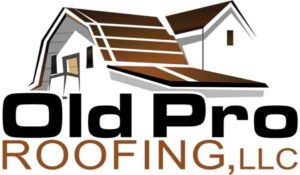With roots in World War II-era construction methods, stone coated steel roofing has an established history as a more durable alternative to traditional tar and shingles. Technological advances in chemistry have also rendered coatings that are even more enduring than their forbears, creating a strong and dependable roof for any structure. Whether you’re building a new home from the ground up, or simply have an older roof that’s in need of replacement, speaking with a Fort Worth roofing company that specializes in metal may help you determine the suitability of stone coated steel for your construction project. While a qualified Fort Worth metal roofing contractor can answer all of these questions and more regarding the process and practicality of stone coated steel as an option for your home, here are a few answers to some of the most frequently-asked questions on the subject.
Will a Steel Roof Be Noisier During Rainstorms?
Unlike tin and other metal roofing solutions, stone coated steel will not be noisy in the rain. Due to the combination of space between the shingles and underlying deck and the stone coating, noise is actually minimized significantly.
How Will a Stone Coated Steel Roof Hold Up in Bad Weather?
Dallas and Fort Worth metal roofing contractors often recommend stone coated steel, due to the medium’s natural storm-damage resistance factor. In fact, steel roof panels have received the Underwriters Laboratories highest impact resistance rating in regard to hail, meaning that only the most extreme hail will have any visible effect at all on the appearance and functionality of your roof. Rain and environmental moisture will not rust or corrode your steel roof, due to the metallic and polymer coatings on the surface of the roofing material. Steel roofing systems can resist wind speeds of up to 120 miles per hour, and are no more prone to lightning strikes than any other roofing material.
Is Steel Roofing Fire Safe?
Because stone coated steel roofing supplies are classified as Class A noncombustible materials, new construction projects and complete re-roofing will result in a Class A roof assembly. Should you opt for application over an existing roof comprised of combustible shingles, the result will fall somewhere between Classes A and C, dependent upon the underlayment between the new roof and the old one. Furthermore, the relatively light weight of stone coated steel roofing makes it less likely to collapse upon any occupants inside a house that has caught fire.
Does Stone Coated Steel Roofing Fade?
Because metal roofing uses the same stone granules as asphalt shingles, albeit more precisely-sized ones, there’s a sufficient amount of historical evidence to show that the color of your new steel roof will not fade over time. Should the color show signs of changing over time, it’s almost certainly due to the settling of contaminants in the air, which can be easily remedied by washing the roof with a hose or simply waiting for the next heavy rain to wash them away.
Will a Steel Roof Affect My Energy Costs?
When a stone coated steel roof is properly installed by a Fort Worth metal roofing specialist, the ventilations system will more air between the underlying deck and shingles, as well as under the decking. Cool air will be drawn through vents in the eaves, while heated air dissipates through the ridgeline. This often results in energy bills that are lower than those you’d encounter with a traditional asphalt-shingle roof.
To find out if stone coated steel roofing is an option for your roof, give us a call.
Fort Worth Roofing Office: 817-929-ROOF (7663)
Dallas Roofing Office: 972-975-ROOF(7663)
